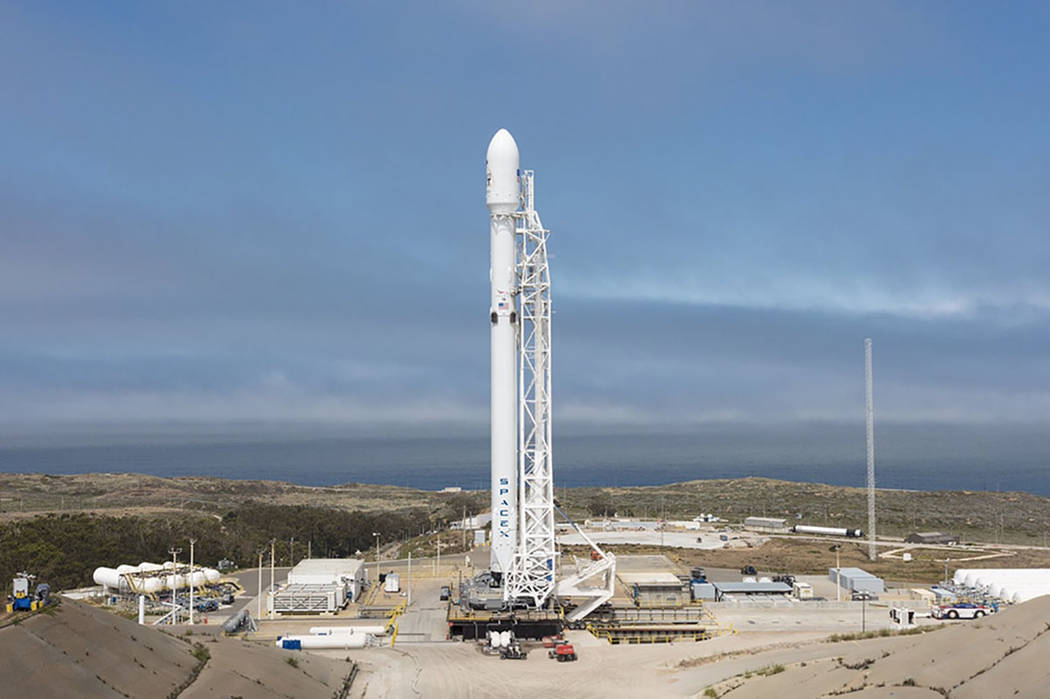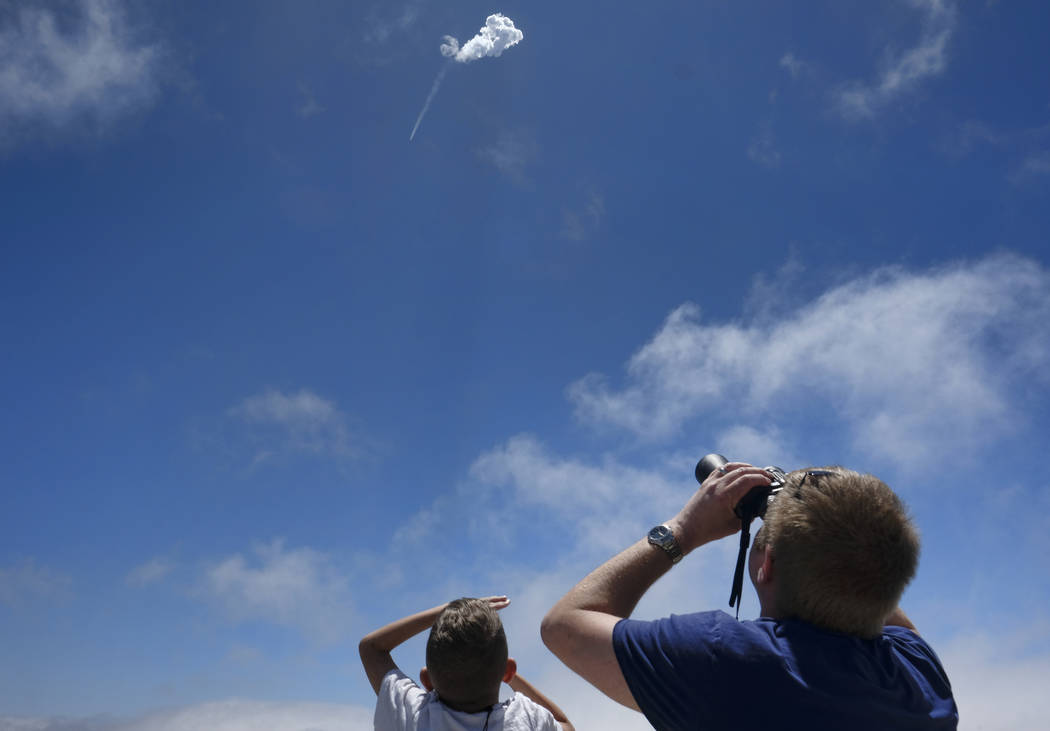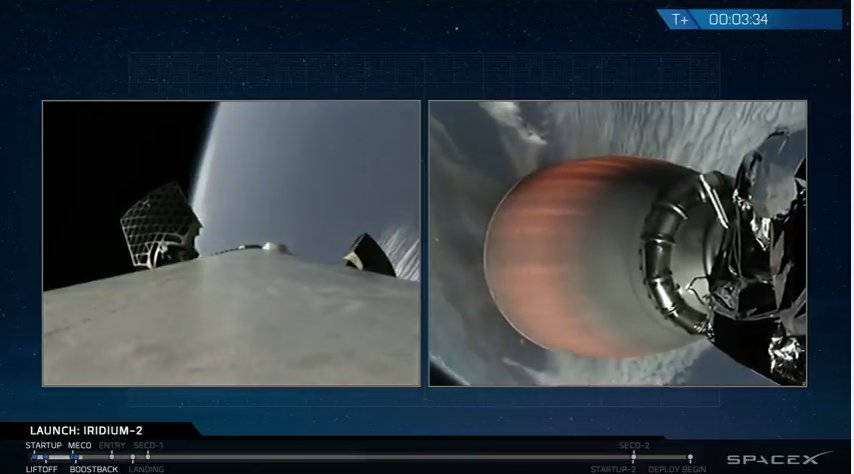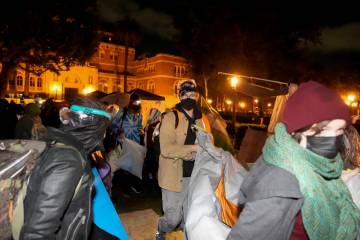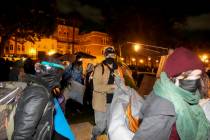SpaceX launches 10 satellites from air base in California
LOS ANGELES — A SpaceX rocket carried 10 communications satellites into orbit from California on Sunday, two days after the company successfully launched a satellite from Florida.
The Falcon 9 rocket blasted off through low-lying fog at 1:25 p.m. PDT from Vandenberg Air Force Base northwest of Los Angeles. It carried a second batch of new satellites for Iridium Communications, which is replacing its orbiting fleet with a next-generation constellation of satellites.
About 7 minutes after liftoff, the rocket’s first-stage booster returned to earth and landed on a floating platform on a ship in the Pacific Ocean, while the rocket’s second stage continued to carry the satellites toward orbit.
A SpaceX Falcon 9 on Friday launched from Cape Canaveral, Florida and boosted a communications satellite for Bulgaria into orbit. Its first stage was recovered after landing on a drone ship in the Atlantic.
Billionaire Elon Musk, who founded Hawthorne, California-based SpaceX, believes reusing rocket components will bring down the cost of space launches.
Iridium plans to put in place 75 new satellites for its mobile voice and data communications system by mid-2018, requiring six more launches, all by SpaceX.
The $3 billion effort by the McLean, Virginia, company involves complex procedures to replace 66 operational satellites in use for many years. Some of the new satellites will be so-called on-orbit spares, or older satellites that remain in orbit on standby for use if the newer ones malfunction.
Swapping out and deorbiting some old satellites has already begun, Iridium CEO Matt Desch said in a pre-launch call with reporters.
Several old satellites have been moved into lower orbits to use up their remaining fuel and configure the solar panels for maximum drag so they will re-enter the atmosphere and burn up.
The first re-entry was believed to have occurred on June 11, Desch said.
“It’s hard to celebrate something like that, but these satellites have put in almost 20 years of service, and making sure we’ve cleaned up after ourselves as we deploy our new constellation is a priority,” he said.
The new satellites also carry payloads for joint-venture Aerion’s space-based, real-time tracking and surveillance of aircraft around the globe, which has implications for efficiency, economy and safety — especially in remote airspace over the oceans.
“This will truly be a revolutionary aspect of air-traffic control,” said Aireon CEO Don Thomas.
The technology, which requires aircraft to be equipped with certain equipment, is undergoing testing involving eight of the initial batch of Iridium NEXT satellites.
The Iridium NEXT program also will bring an end to so-called “Iridium flares,” which space enthusiasts have observed for years. The new satellites will not create visible flashes of reflected sunlight as they passed overhead.



